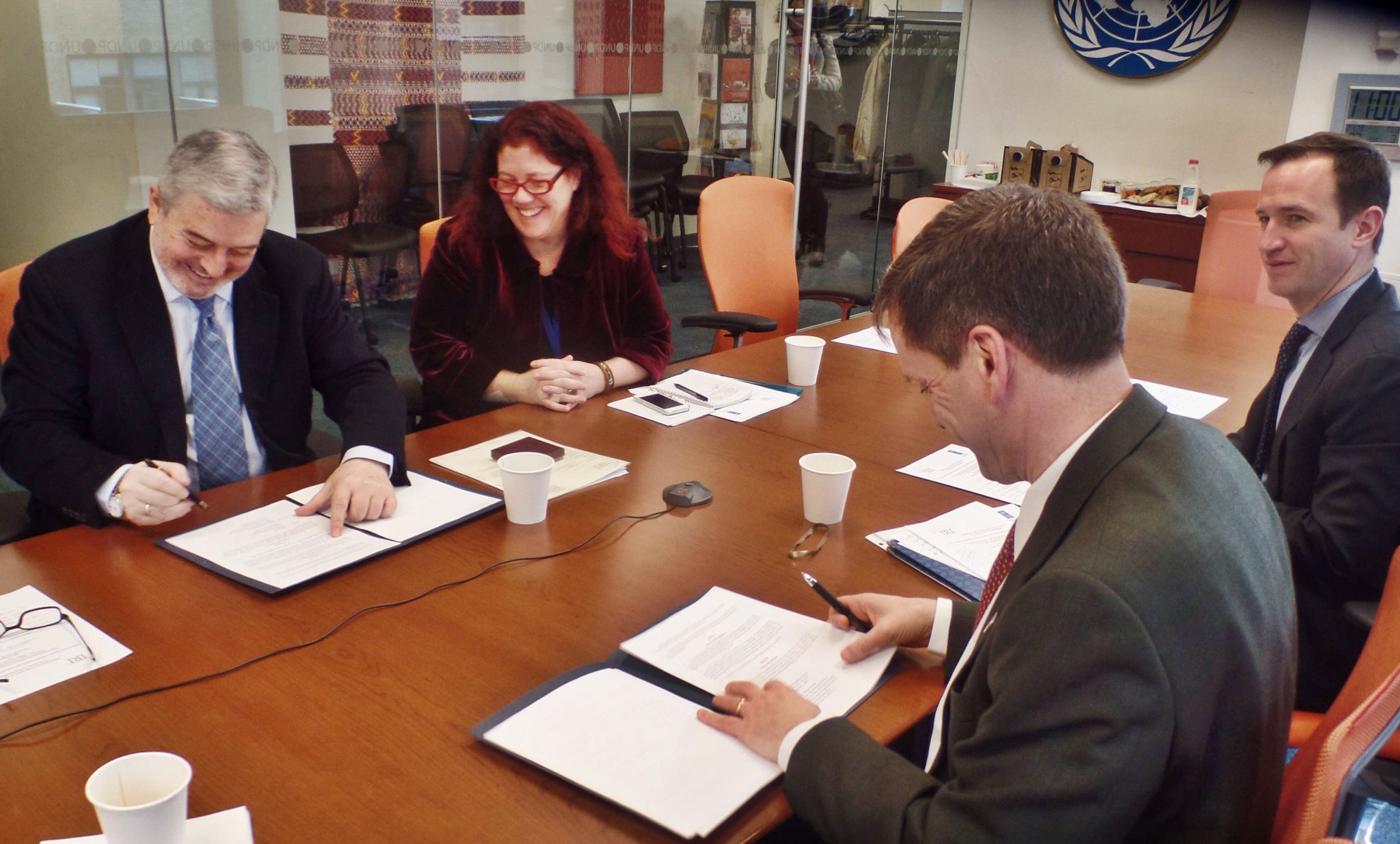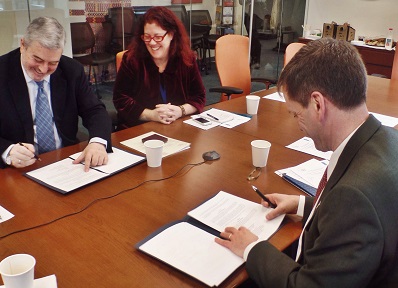UNDP and IRI Ink Agreement to Boost Global Collaboration
The United Nations Development Programme and IRI today signed a memorandum of understanding to boost their work together on democratic governance and inclusive political pluralism around the world. The MOU was signed by Mr. Martínez-Solimán, with UNDP, and Amb. Green of IRI.

 New York – The United Nations Development Programme (UNDP) and IRI signed a memorandum of understanding (MOU) to boost their work together on democratic governance and inclusive political pluralism around the world today.
New York – The United Nations Development Programme (UNDP) and IRI signed a memorandum of understanding (MOU) to boost their work together on democratic governance and inclusive political pluralism around the world today.
“We have much in common and we have worked together in the field of democratic governance support for many years” said Magdy Martínez-Solimán, UNDP Assistant Administrator and Director of UNDP’s Bureau for Policy and Programme Support.
“We hope that this MoU will strengthen the partnership and facilitate better coordination between UNDP and IRI in assisting countries to strengthen democratic governance systems and processes and achieve peaceful settlement of disputes.”
Through the memorandum, the organisations will share knowledge and expertise related to inclusive participation, democratic governance, civic engagement and electoral processes. They will also work together on innovative monitoring and evaluation techniques to ensure programmes of support are successful and make a difference to people’s lives.
“We believe that our efforts are stronger when we work side by side with organizations like UNDP,” said Ambassador Mark Green, president of IRI. “These partnerships are crucial to meeting the global challenges facing struggling democracies today.”
Closer coordination of technical assistance and activities will enable IRI and UNDP to work together to support local officials and citizens as they strengthen their own democracies.
The MOU was signed at a ceremony at the UNDP offices in New York and was signed by Mr Martínez-Solimán on behalf of the UNDP and by Ambassador Green on behalf of IRI.
A nonprofit, nonpartisan organization, IRI advances freedom and democracy worldwide by helping political parties to become more issue-based and responsive, assisting citizens to participate in government planning, and working to increase the role of marginalized groups in the political process – including women and youth. Established in 1983, IRI programs have reached more than 100 countries in every region of the world.
Top